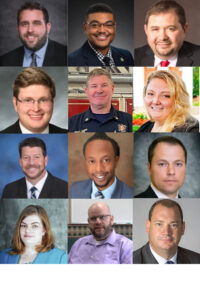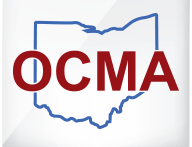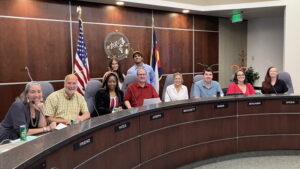We’ve all heard the generation stereotypes: Millennials spend all their money on avocado toast so they can’t afford to buy a house. Generation Z was raised on the internet and texting, and now they don’t know how to have an in-person conversation. Traditionalists (or the Silent Generation) still write checks at the grocery store.
But these stereotypes are widely untrue and can be harmful—especially in the workplace. And as multigenerational expert Lindsey Pollak told the audience in her 2023 ICMA Annual Conference keynote presentation, these stereotypes tend to rear their ugly head whenever a new generation enters the workforce.
For the first time in history, we have five distinct generations in the U.S. and global workforce: the traditionalists or Silent/World War II Generation (born between 1928 and 1945), baby boomers (1946–1964), Generation X (1965–1980), millennials (1981–1996), and Generation Z (1997–2012). Pollak remarked, “When you walk into a conference room or log onto a Zoom call, you might be talking to people 50 or 60 years older or younger than you are, and it’s not immediately apparent which one is the leader.”
Pollak displayed a slide with this quotation:
I see no hope for the future of our people if they are dependent on the frivolous youth of today.
While this could have been said at any time in recent history, it was actually from the eighth century B.C. “We have literally been shaming younger generations for all of human history!” Pollak continued, “This is my argument to you today: for leaders who want to fill roles, run successful local governments, and develop talent, it’s a mistake to write off an entire generation. Become a leader that embraces all age groups. It’s a choice to see generational diversity not as a problem or a challenge to overcome, but as an opportunity to embrace.”
Pollak explained that the reason we’re a five-generation workplace is not because of young people coming up from high school and college; today, people are living and working longer and later into their careers. “There are more Americans over the age of 85 in the workplace today than ever before in history, but as we all know, the generations that are most likely to leave their jobs—the generation that is hardest to recruit and retain—are the millennials and Gen Zers.”
What does that mean for today’s workplace? Different working styles, different ways of communicating, and different perspectives. Pollak explained that generational identity gives us important information about our colleagues and can help us understand people’s shared experiences and likely expectations.
A helpful analogy for an international organization is to think of each generation as being regionally or culturally different. She said, “When you think about generational differences being similar to cultural differences, you take away the judgment that one is better or worse, good or bad, right or wrong, and we simply talk about adapting to a difference rather than judging it.”
And what do you call someone who tactfully navigates generational dynamics in the workplace? Tech entrepreneur Gina Pell coined the term perennial to describe “ever-blooming people of all ages who continue to push up against their growing edge, always relevant, and not defined by their generation.”
We can’t control our age, but a perennial does two things: (1) They decide to learn some history and context of what came before them, and they respect it, honor it, and learn from it; and (2) they adapt to changing times. It’s good to be mindful of the past because it helps us change and grow. Pollak told a story about an architect who is a professor and baby boomer. He learned architectural design using only pencil and paper, but beginning in the 1980s, architects (including him) started using CAD design software. He still teaches his students and mentees how to design with a pencil because sometimes it truly is faster on the job. For him and his students, it’s another tool in the toolkit. It’s not better or worse, right or wrong, good or bad—it’s just different. Pollak encouraged the audience to “combine the best of each generation’s practices—the classic and the new—to create a more successful and inclusive workplace for all.” These kinds of combinations—or remixes—can help to make us a perennial.
Think about remix songs. Music producers take a classic, beloved song and alter it, adding new elements to make it something fresh and different. Pollak said that a DJ once told her that remixes were the key for playing weddings, which are almost always a multigenerational event. She said that when the dance floor is empty, she will play a remix because the older people recognize the classic song and the younger people recognize the remixed modern version, which brings everyone to the dance floor. The modern workplace is about “finding the remixes” so that everyone can be empowered, collaborative, and productive.








